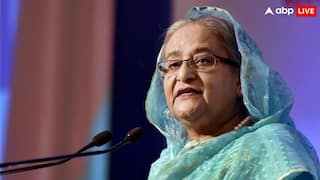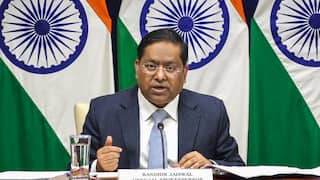WHO Revises Dietary Guidelines On Fats, Carbohydrates For Better Health & Disease Prevention
Carbohydrate intake for individuals aged 2 years and older should mainly come from whole grains, vegetables, fruits, and pulses.

The World Health Organization (WHO) has updated its dietary guidelines on fats and carbohydrates, aiming to reduce the risk of unhealthy weight gain and diet-related noncommunicable diseases like type 2 diabetes and cardiovascular disease. The revised guidelines are based on the latest scientific evidence and emphasise the importance of both the quantity and quality of fats and carbohydrates in a balanced diet.
According to the WHO's new guidelines, total fat intake should be limited to 30 per cent or less of total energy intake, with a focus on consuming unsaturated fatty acids. Saturated and trans-fatty acids, found in fatty meats, dairy foods, and baked and fried foods, should be limited to no more than 10 per cent and 1 per cent of total energy intake, respectively.
The WHO recommends replacing saturated and trans-fatty acids with healthier options like polyunsaturated fatty acids and monounsaturated fatty acids from plant sources, as well as carbohydrates from whole grains, vegetables, fruits, and pulses.
Carbohydrate quality is also highlighted in the guidelines. Carbohydrate intake for individuals aged 2 years and older should mainly come from whole grains, vegetables, fruits, and pulses. Adults are advised to consume at least 400 grams of vegetables and fruits and 25 grams of dietary fibre per day.
For the first time, WHO provides specific guidance for children and adolescents on vegetable, fruit, and dietary fibre intake:
- 2-5 years old: at least 250 grams of vegetables and fruits and 15 grams of dietary fibre per day
- 6-9 years old: at least 350 grams of vegetables and fruits and 21 grams of dietary fibre per day
- 10 years or older: at least 400 grams of vegetables and fruits and 25 grams of dietary fibre per day.
These guidelines complement existing WHO recommendations on free sugars, non-sugar sweeteners, and sodium, as well as forthcoming guidelines on polyunsaturated fatty acids and low-sodium salt substitutes, all of which contribute to promoting healthy diets.
By adopting these evidence-based guidelines, individuals can make informed dietary choices to safeguard their health and reduce the risk of diet-related health issues, contributing to the concept of a balanced and healthy diet.






































